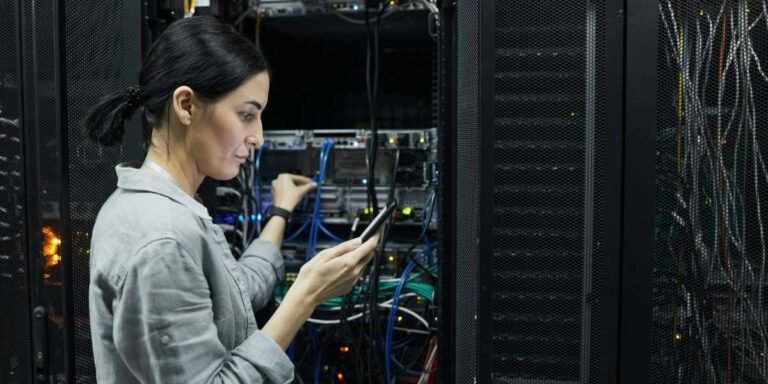The recent proposal for a power rate hike by Portland General Electric (PGE) has sparked significant discussion among residents and businesses in Portland. A proposed increase of 10.9% in electricity rates could have widespread implications for the city. This article explores what the proposed power rate hike could mean for Portland, examining its potential effects on households, businesses, and the local economy.
The Context Behind the Power Rate Hike
Why is the Rate Hike Being Proposed?
Portland General Electric, one of the major utility providers in the region, has cited several reasons for proposing the rate hike. These include the need to upgrade aging infrastructure, invest in renewable energy projects, and cover the rising costs associated with energy production and distribution. Additionally, regulatory requirements and the push for cleaner energy sources are contributing factors to the increased operational costs that PGE is facing.
Historical Context of Rate Hikes in Portland
This is not the first time that Portland has seen a proposed increase in power rates. Historically, utility companies in the region have periodically adjusted rates to keep pace with inflation, infrastructure needs, and changes in energy policy. However, the magnitude of the current proposal is noteworthy and has drawn attention from various stakeholders.
Potential Impacts on Households
Increased Household Expenses
For Portland residents, a 10.9% increase in electricity rates would mean higher monthly utility bills. For many households, especially those on fixed or low incomes, this could lead to financial strain. The cost of electricity is a significant portion of household expenses, and any increase could require families to adjust their budgets, potentially cutting back on other essential spending.
Energy Efficiency and Conservation Efforts
In response to higher electricity costs, more households may turn to energy efficiency and conservation measures to reduce their consumption. This could involve investing in energy-efficient appliances, improving home insulation, or adopting renewable energy sources like solar panels. While these measures can lead to long-term savings, the upfront costs may be prohibitive for some families.
Impact on Businesses
Operating Costs and Profit Margins
For businesses in Portland, the proposed rate hike could result in increased operating costs. Industries that rely heavily on electricity, such as manufacturing, retail, and hospitality, may see a significant impact on their profit margins. Small businesses, in particular, could be vulnerable as they may have less flexibility to absorb or pass on these additional costs to consumers.
Price Increases for Goods and Services
As businesses face higher electricity costs, they may be forced to increase the prices of goods and services to maintain profitability. This could lead to higher prices for consumers, contributing to inflationary pressures in the local economy. For businesses with tight competition, passing on costs to consumers could also risk losing market share.
Encouraging Sustainability Practices
On the positive side, the rate hike could incentivize businesses to adopt more sustainable practices. Companies may invest in energy-efficient technologies, switch to renewable energy sources, or implement conservation strategies to reduce their electricity consumption. These measures not only help mitigate the impact of higher electricity costs but also align with broader environmental goals.
Economic and Community Impacts
Strain on Low-Income Communities
The proposed rate hike could disproportionately affect low-income communities in Portland. These communities often spend a higher percentage of their income on utilities, and any increase in rates could exacerbate financial hardships. This underscores the importance of utility assistance programs and community support initiatives to help mitigate the impact on vulnerable populations.
Potential for Increased Energy Poverty
Energy poverty, defined as the inability of households to afford adequate energy services, could become more prevalent if the rate hike is implemented. Families may struggle to pay their electricity bills, leading to difficult choices between heating their homes, buying food, or paying for healthcare. Addressing energy poverty will require targeted interventions, such as subsidies, assistance programs, and education on energy conservation.
Investments in Renewable Energy and Infrastructure
One of the long-term benefits of the proposed rate hike is the potential for increased investment in renewable energy and infrastructure upgrades. By generating additional revenue, PGE could accelerate the transition to cleaner energy sources, such as wind and solar power. This shift is crucial for reducing greenhouse gas emissions and achieving sustainability targets in Portland and beyond.
What Can Be Done?
Advocacy and Community Involvement
Portland residents and businesses can play a role in shaping the outcome of the proposed rate hike by participating in public hearings, engaging with policymakers, and advocating for fair and equitable solutions. Community involvement is key to ensuring that the voices of all stakeholders, particularly those most affected by the rate increase, are heard.
Exploring Alternative Energy Solutions
Both households and businesses can explore alternative energy solutions to reduce their reliance on grid electricity. Investing in solar panels, participating in community solar programs, or using energy storage systems are viable options for reducing energy costs in the long term. Additionally, energy efficiency programs offered by utility companies can provide financial incentives for adopting energy-saving measures.
Supporting Vulnerable Populations
It is essential to support vulnerable populations who may be disproportionately affected by the rate hike. Utility assistance programs, energy subsidies, and community support initiatives can help mitigate the impact on low-income families. Policymakers and utility companies must work together to ensure that these programs are accessible and adequately funded.
The proposed power rate hike in Portland could have far-reaching implications for households, businesses, and the broader community. While the increase is driven by the need for infrastructure upgrades and investments in renewable energy, it also presents challenges, particularly for low-income residents and small businesses. By understanding the potential impacts and exploring solutions, Portland can navigate the rate hike while promoting sustainability and economic resilience.









